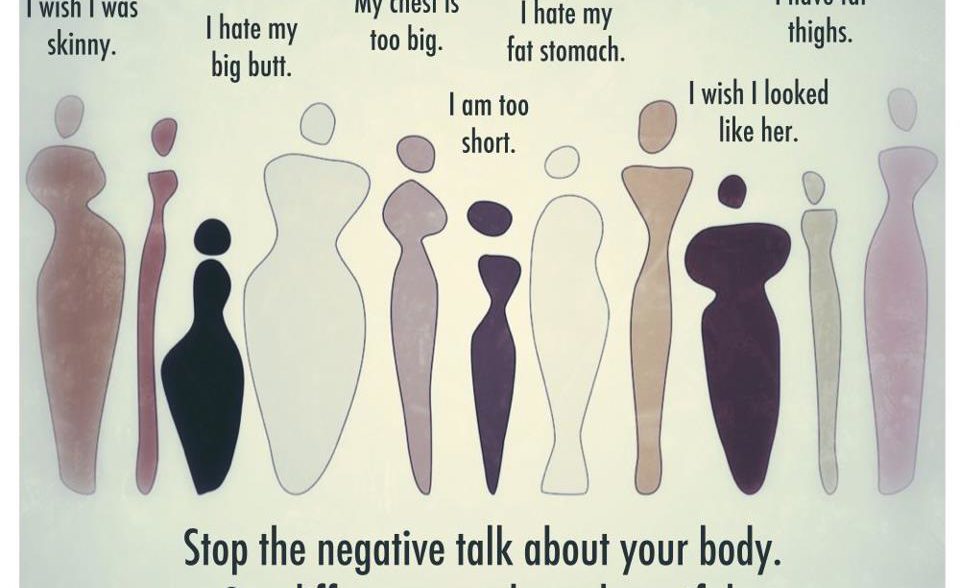Raising Body-Positive Children

Vandita Morarka leads policy initiatives, legal research and United Nations liaison work at Safecity. She is a policy professional who holds an MA Hons. in Public Policy and has worked extensively with politicians, government bodies, organisations and philanthropists towards development projects. Vandita identifies strongly as a feminist and her areas of interest include human rights law, development policy, gender justice and legal reform. She is passionate towards creating a gender just and more equitable world and hopes to find solutions to pressing needs through a mix of law, policy and people willing to fight hard enough to change the status quo. Vandita enjoys travel, adventure sports and can be found immersed in reading at most times. She is currently also pursuing her LL.B from GLC, Mumbai.
Raising Body-Positive Children
Mota. Fatso. Dandi. Beanpole.
Words seem common? They shouldn’t.
My generation and the previous ones have grown up with constant body shaming. From close family members to perfect strangers in the train, everyone has a tuppence worth of advice on how you can have a better body or face. Such shaming is not harmless, it’s not just children playing and showing love and affection. It has real life consequences. These undertones of body shaming carry forward through our lives and reflect in our interactions with others, how we deal with physical intimacy, our self esteem and how we place our self worth.
So how do we raise children that do not body shame others and are confident of their own bodies? We teach them self love, we teach them to be proud of their bodies and to love their bodies and to respect others. And how do we teach them this? We teach them by example, by loving our own bodies and being comfortable with ourselves and by letting others be comfortable in their own skin.
- Dispel stereotypes: Explain to your children that media portrayals of bodies are not necessarily true and that the use of Photoshop is setting unrealistic body goals. Get them to absorb media that is more beneficial towards them being more empathetic and humane and exposes them to a variety of body types and stories rather than ones focusing only on certain body standards.
- Raise kids to be healthy and not a certain body type: Encourage your child to be healthy, encourage healthy eating and exercise and a lifestyle that keeps them active and fit. Even then understand that several genetic body types and disorders may not allow your child or that of another to be as healthy, work towards correcting that with the aim of making the child healthy, not a size zero. Your goal should be to raise a healthy child, not a child who is not fat. Your child needs to know the difference in being healthy and being skinny.
- Set a positive example: Show your kids that you like your body. Do not say things like, ‘I am feeling fat today’. You cannot feel fat, fat is not a feeling, but it perpetuates a stereotype in your home. Do not create a culture of shaming within the home by directing it at yourself too. Do not body shame your own children. For e.g., do not tell your child that fairer skin would make them look so much prettier. Who ever decided that skin colour decides beauty? Also, please do not shame others, do not talk of other people negatively using phrases like, ‘No one will marry XYZ’s daughter because she is dark.’ And if you have been doing this, stop. Stop right now and re evaluate and explain to your child how your behaviour may have been wrong and you will now be changing it.
- Encourage your child to take these learnings to others: But just maybe there is a child who hasn’t been taught this, then how do we cope? Your child must be encouraged to take body positive aspects to other children. The child must learn not to shame others for their skin colour, hair, body shape etc and rather learn to love and connect with people on the basis of their character traits. Also encourage your child to stop others from bullying, in general and on the basis of these physical traits.
Encourage other parents and teachers to raise their kids to be body positive as well. Ensure that your child knows that they can talk to you if someone ever bullies them and raise them to be confident in their own bodies. Body shaming can have effects that last well beyond our teenage years and that leave a deep mark on us and how we look at ourselves. We need to raise children with more love, more empathy and more humanity. Children that are respectful of others and do not discriminate. Children need to be able to look at themselves and all others with love and respect and we must ensure that they can do so.
Opinions are of the writer.


